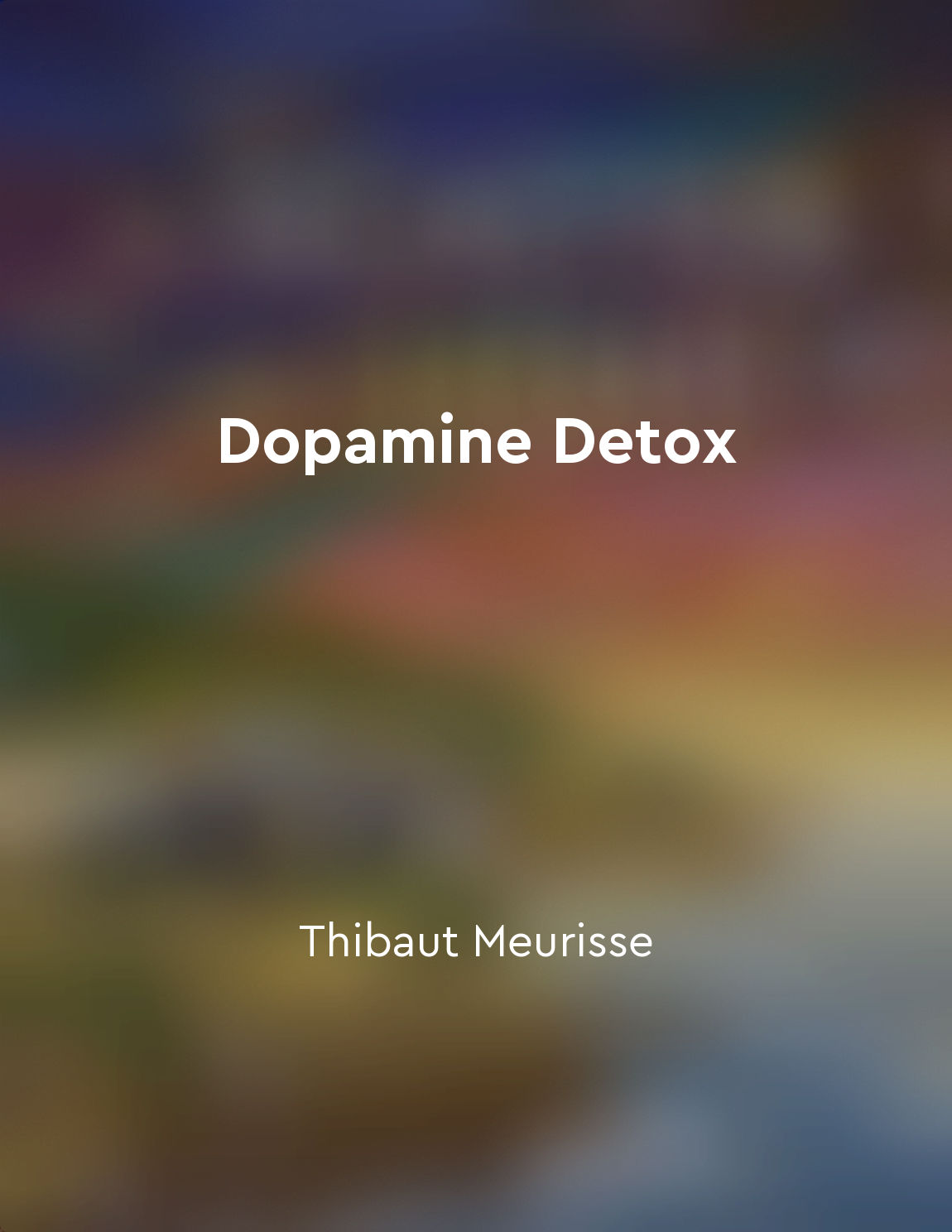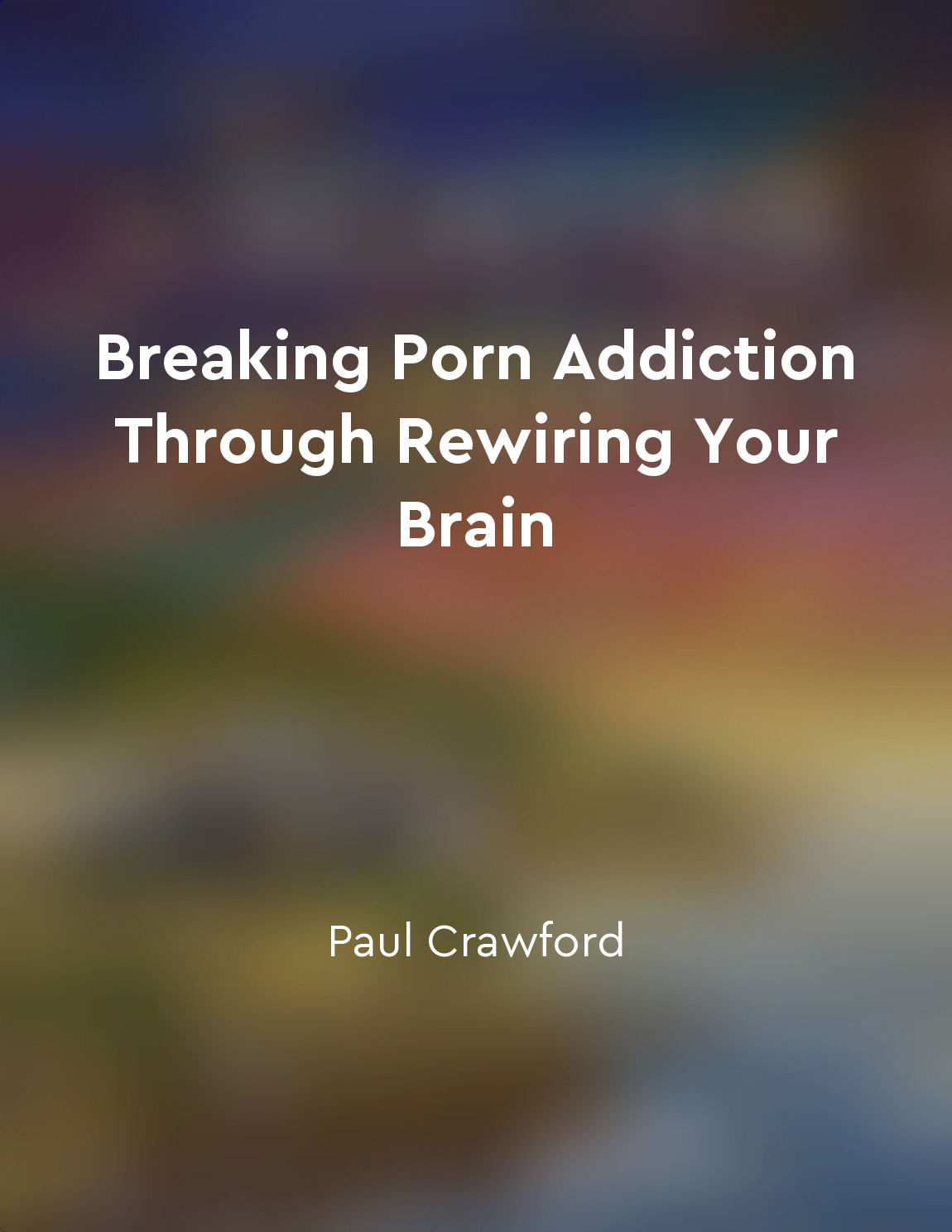Understanding the role of dopamine in addiction can be helpful from "summary" of Everything you need to Know About Masturbation Addiction by Prof. (Dr.) Saransh Jain
The role of dopamine in addiction is crucial to understanding the mechanisms that drive addictive behaviors. Dopamine is a neurotransmitter that plays a key role in the brain's reward system. When we engage in pleasurable activities, such as eating good food or engaging in sexual activity, dopamine is released in the brain, giving us a sense of pleasure and reward. In the case of addiction, the release of dopamine becomes dysregulated, leading to a cycle of seeking out the addictive behavior to experience the same level of pleasure and reward. This can lead to a dependence on the behavior, as the individual becomes increasingly reliant on the dopamine release to feel good. By understanding the role of dopamine in addiction, we can better comprehend why addictive behaviors are so difficult to break. It's not simply a matter of willpower or moral failing; addiction fundamentally alters the brain's chemistry, making it hard for individuals to resist the urge to engage in the addictive behavior. Furthermore, understanding the role of dopamine in addiction can help us develop more effective treatment strategies. By targeting the brain's reward system and working to restore the balance of dopamine, we can help individuals break free from the cycle of addiction and regain control over their lives.- Delving into the role of dopamine in addiction is essential for anyone looking to understand and address addictive behaviors. It sheds light on why addiction is so challenging to overcome and opens up new avenues for treatment and recovery.
Similar Posts
Traumatic brain injuries can have longterm consequences
Traumatic brain injuries are not to be taken lightly. They can have lasting effects that can impact a person's life in profound...

Create a schedule that allows for regular breaks from highly stimulating activities
To ensure a successful dopamine detox, it is essential to create a schedule that incorporates regular breaks from highly stimul...
External factors can impact happiness levels
The circumstances of our lives, whether we like to admit it or not, have a significant influence on our level of happiness. Thi...
Building resilience through mental toughness
Building resilience through mental toughness is a crucial skill that can be honed through deliberate practice. This concept inv...
Time blocking can help allocate specific time for hyperfocus sessions
When it comes to hyperfocus, one of the most effective strategies we can use is time blocking. Time blocking involves setting a...
Habits are not fixed and can be modified over time
Habits are not fixed and can be modified over time. This is a key concept that Charles Duhigg explores in "The Power of Habit."...

Sharing experiences with others can inspire hope
When we are struggling with addiction, it can feel like we are all alone in our battle. We may feel ashamed, embarrassed, and h...
Monitoring progress is important in treatment
It is crucial to closely monitor the progress of individuals undergoing treatment for drug addiction. This monitoring allows he...

